As believers rooted in faith, it’s essential to continually seek understanding and clarity on the teachings and mysteries of the Bible. This series, «Curiosities & Debates,» is designed to cater to an evangelical audience, aiming to provide insightful explorations into some of the most intriguing and sometimes debated topics found in the Scriptures. Using clear and straightforward language, this article seeks to enrich your spiritual knowledge and faith journey.
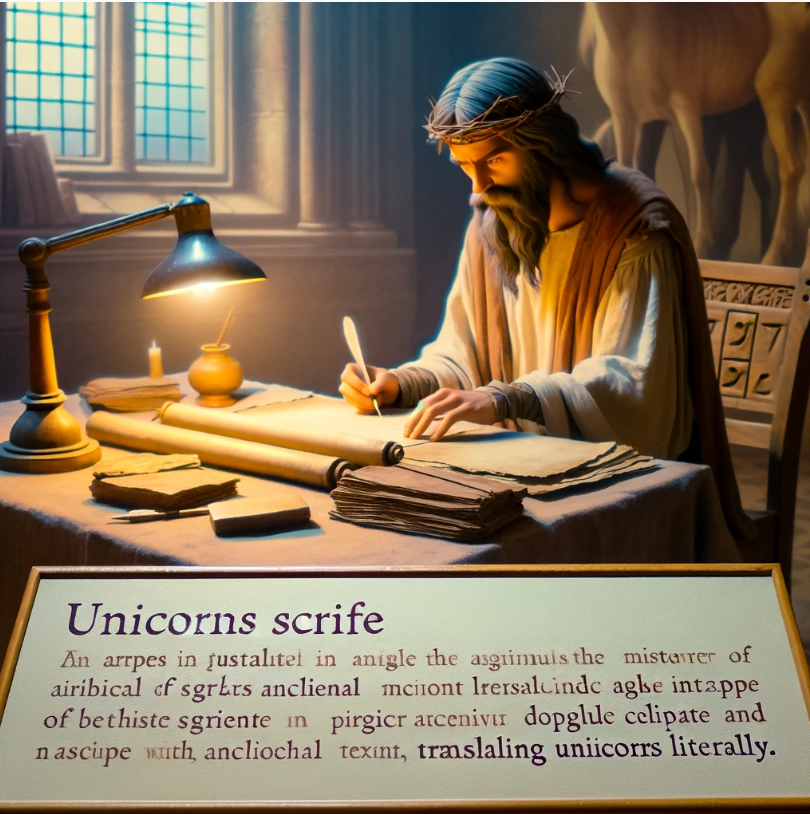
Where Does the Bible Mention Unicorns?
The Bible mentions unicorns in several passages within the King James Version (KJV), including Job 39:9-12, Deuteronomy 33:17, Numbers 23:22,…

Where in the Bible Are the Nicolaitans Mentioned?
The Nicolaitans are mentioned in the Book of Revelation in the New Testament. Specifically, they are referenced in Revelation 2:6…

Where in the Bible Is the Trinity Explained?
The concept of the Trinity as one God in three persons (Father, Son, and Holy Spirit) is not explicitly detailed…

Where in the Bible Does It Say «Come as You Are»?
The phrase "Come as you are" is not found verbatim in the Bible. However, the thematic idea that God welcomes…

Where in the Bible Is the Mercy Seat Mentioned?
The term "Mercy Seat" is mentioned in several places in the Bible, primarily in the Old Testament. Notably, it appears…
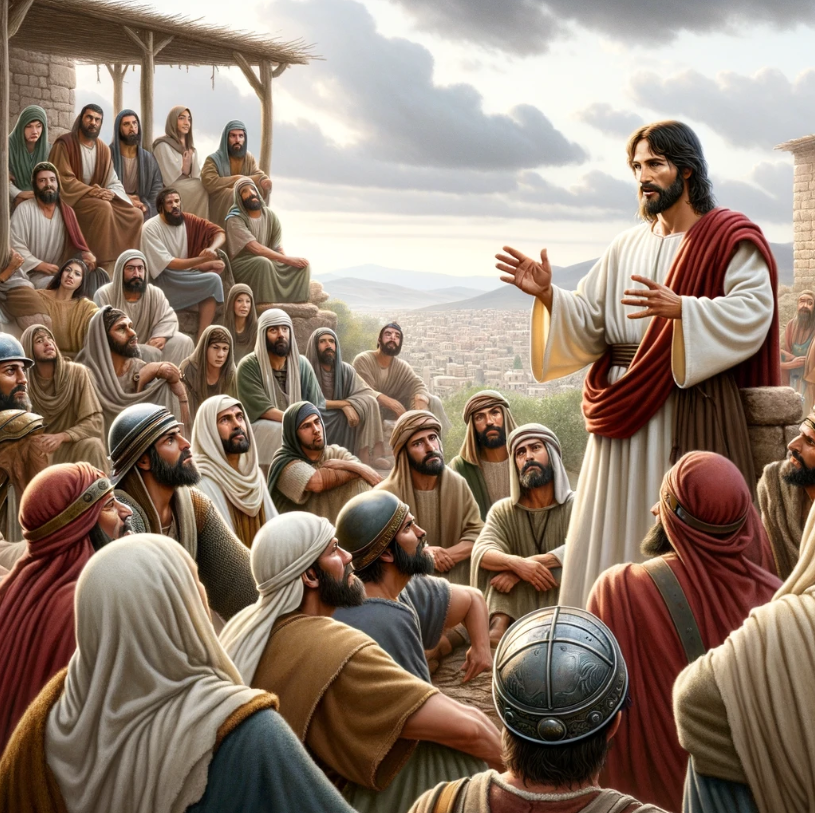
Where in the Bible Does It Talk About Praying to Saints?
The Bible does not explicitly mention the practice of praying to saints. This tradition is primarily found in the practices…

Where in the Bible Does It Say God Repented?
In the Bible, instances where it says that God repented are found in the following verses: Genesis 6:6 1 Samuel…

Where in the Bible Are Eunuchs Discussed?
Eunuchs are discussed in several places in the Bible. Key references include: Isaiah 56:3-5, Matthew 19:12 and Acts 8:27-39. These…

Where Does the Bible Mention Dinosaurs?
The Bible does not explicitly mention dinosaurs using that term. However, some scholars and readers have interpreted certain passages, such…

Where in the Bible Is Lucifer Mentioned?
Lucifer is mentioned in Isaiah 14:12 of the Bible, in the King James Version. This passage is often interpreted as…

Where in the Bible Does It Say «Guard Your Heart»?
The phrase "Guard your heart" is found in the Bible in Proverbs 4:23. Proverbs 4:23 Above all else, guard your…

Where in the Bible Is Fasting Discussed?
asting is discussed in several places within the Bible. Here are some key references: Matthew 6:16-18 - When you fast, do…

Where in the Bible Are Angels Described?
Angels are described in various parts of the Bible, including: Genesis 19:1 - Angels visit Lot in Sodom. Isaiah 6:1-3…

Where in the Bible Does It Mention «Once a Man, Twice a Child»?
The phrase "Once a man, twice a child" does not appear in the Bible. This saying is a proverbial expression…

Where in the Bible Does It Say Not to Eat Pork?
The prohibition against eating pork is found in the Old Testament of the Bible, specifically in Leviticus 11:7-8 and Deuteronomy…
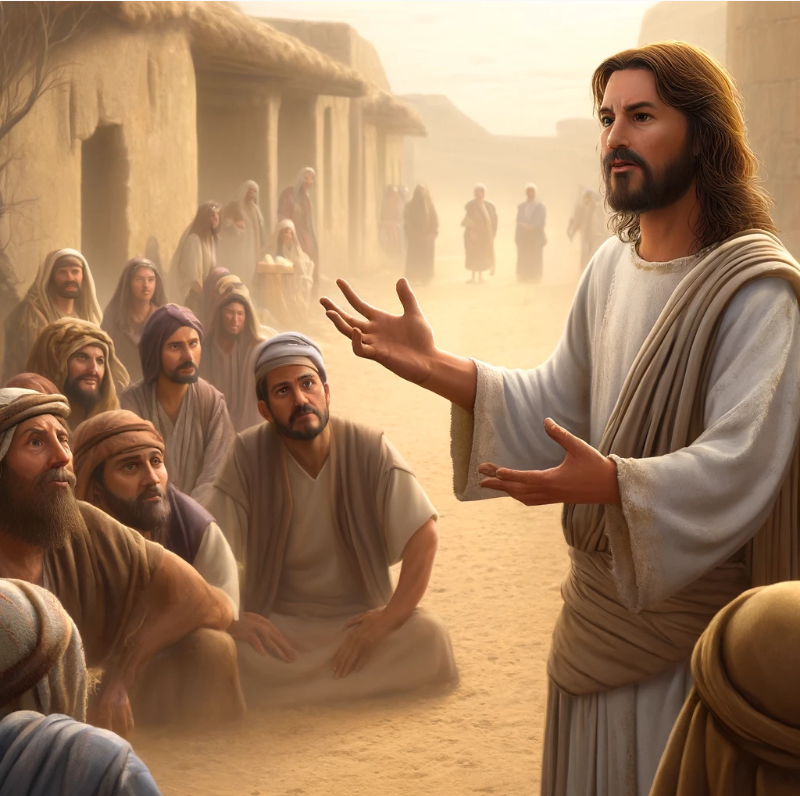
Where in the Bible Does It Say «Let the Dead Bury the Dead»?
The phrase "Let the dead bury their own dead" is found in the Gospel of Matthew 8:22, in the New…

Where in the Bible Are the Seven Deadly Sins Listed?
The Seven Deadly Sins are not listed together in a single passage in the Bible. Instead, they are derived from…

Where in the Bible Does It Say Not to Celebrate Christmas?
The Bible does not explicitly mention or forbid the celebration of Christmas. No specific verse directly states that Christmas should…

Where in the Bible Is the Red Heifer Mentioned?
The Red Heifer is mentioned in the Bible in Numbers 19:2 and Numbers 19:6. Numbers 19:2 This is the ordinance…

Where in the Bible Is Being Unequally Yoked Discussed?
The concept of being "unequally yoked" is discussed in 2 Corinthians 6:14. 2 Corinthians 6:14 Be ye not unequally yoked…

Where in the Bible Is the Concept of «Once Saved, Always Saved» Discussed?
The concept of "Once Saved, Always Saved" is not explicitly mentioned in the Bible, but proponents often cite several passages…

Where in the Bible Does It Say «Create in Me a Clean Heart»?
"Create in me a clean heart" is found in the Bible at Psalm 51:10. Psalm 51:10 Create in me a…

Where in the Bible Are Tattoos Discussed?
In the Bible, the topic of tattoos is mentioned in Leviticus 19:28. This verse offers guidance on body markings among…

Where in the Bible Are Fallen Angels Mentioned?
Fallen angels are mentioned in the following places in the Bible: Isaiah 14:12-15 - This passage is often interpreted as…

Where in the Bible Does It Say «Faith Without Works Is Dead»?
The phrase "Faith without works is dead" is found in the Bible in the book of James 2:26. James 2:26…

Where in the Bible Does It Say «Be Still and Know That I Am God»?
The phrase "Be still, and know that I am God" is found in the Bible in Psalm 46:10. Psalm 46:10…

Where in the Bible Does It Say «I Will Never Leave You»?
The phrase "I will never leave you" appears in the Bible in Hebrews 13:5. Hebrews 13:5 Let your conversation be…

Where in the Bible Is Purgatory Mentioned?
Purgatory is not explicitly mentioned by name in the Bible. However, some Christian traditions interpret certain passages as suggestive of…

Where in the Bible Does It Say «You Reap What You Sow»?
The phrase "You reap what you sow" is closely associated with Galatians 6:7 in the Bible, which states, "Do not…
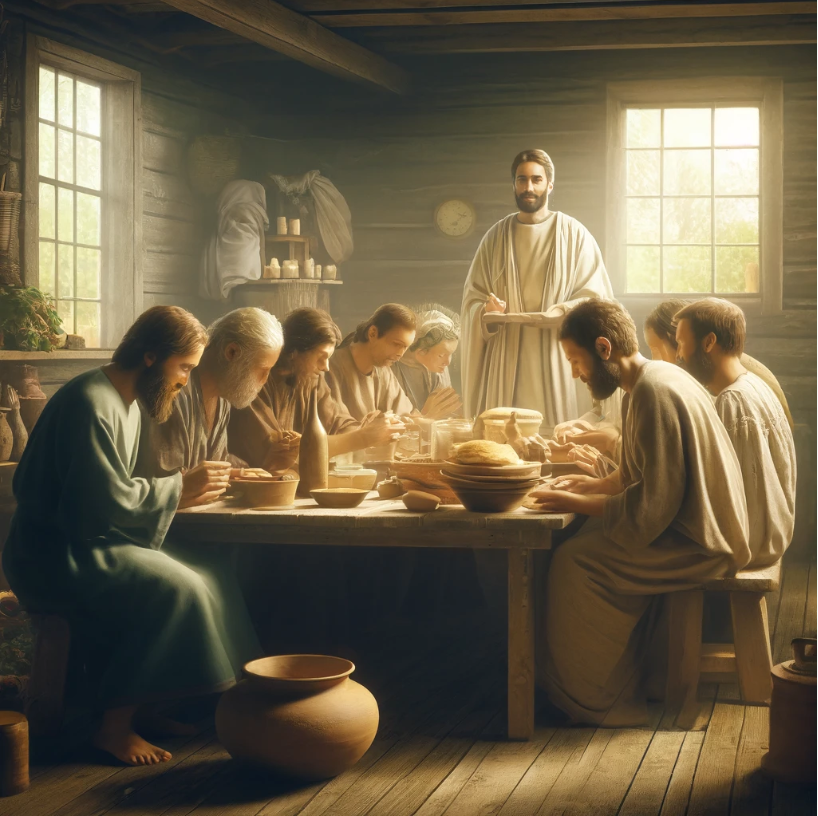
Where in the Bible Is Koinonia Mentioned?
Koinonia is a term found in the New Testament of the Bible, primarily in the books written by Paul. It…

Where in the Bible Is Lilith Mentioned?
In Isaiah 34:14, there is a reference to a creature in the Hebrew text that is sometimes translated as "night…
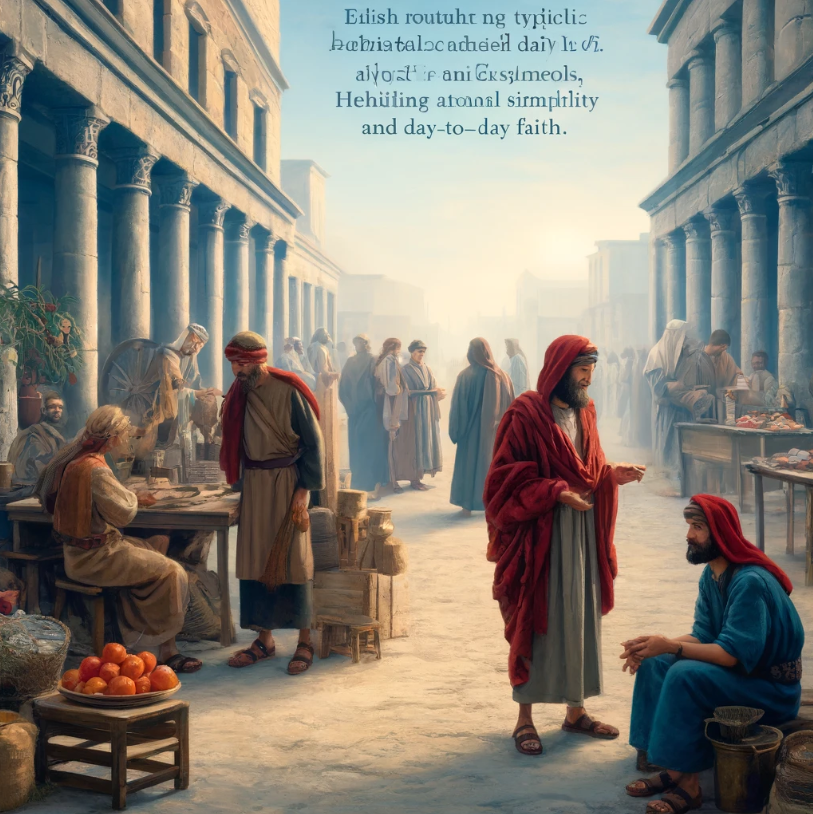
Where in the Bible Is the Year of Jubilee Mentioned?
The Year of Jubilee is mentioned in the Bible in Leviticus 25:8-13. Leviticus 25:8-13 8 Count off seven sabbath years…

Where in the Bible Does It Say «To Whom Much Is Given, Much Is Required»?
The phrase "to whom much is given, much is required" appears in the Bible in Luke 12:48. Luke 12:48 But…

Where in the Bible Does God Say «Vengeance Is Mine»?
In the Bible, the phrase "Vengeance is mine" is found in Romans 12:19. Romans 12:19 Dearly beloved, avenge not yourselves,…

Where in the Bible Does It Specify When Jesus Was Born?
The Bible does not specify an exact date for the birth of Jesus Christ. There are no verses that mention…
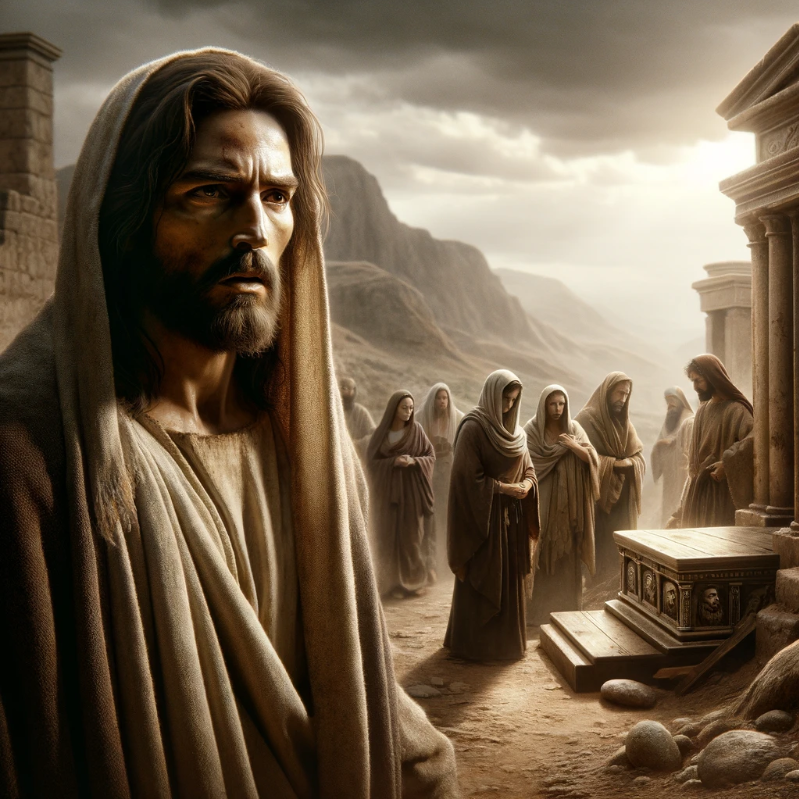
Where in the Bible Does It Say «Jesus Wept»?
The phrase "Jesus wept" is found in the Gospel of John 11:35. John 11:35 And said, Where have ye laid…

Where in the Bible Does It Say Life Begins at Conception?
The Bible does not explicitly state that life begins at conception. However, some interpret passages like Psalm 139:13-16 and Jeremiah…
The Significance of Biblical Statements and Phrases
Many believers often wonder about specific phrases and statements in the Bible, their origins, and their meanings within the broader context of scripture. For instance, phrases like «Faith without works is dead» and «Be still and know that I am God» are pivotal in understanding the essence of faith and the nature of God. These phrases are not just words; they are foundational concepts that reinforce our faith and guide our practices. By delving into these statements, we uncover layers of spiritual truth and theological depth, enhancing our personal and communal faith experiences.
The Timing and Specificity of Events in the Scriptures
Questions often arise about the timing and specificity of certain biblical events, such as the exact date of Jesus’s birth or detailed accounts of the Last Supper. While the Bible may not always provide precise dates or descriptions as a history textbook would, it offers us theological truths and insights that stand beyond the bounds of time and place. Understanding these events from a faith perspective allows us to appreciate the why more than the when, leading to a deeper spiritual appreciation and a more robust faith.
Doctrinal Debates and Interpretations
Debates on doctrines such as «Once Saved, Always Saved» or the concept of the Trinity are prominent among believers. These discussions are vital as they help clarify our beliefs and encourage deeper theological engagement within the community. Addressing these topics openly and respectfully can lead to enriched understanding and spiritual growth. It is through these debates that we can explore the diversity of thought within the Christian faith and refine our beliefs according to biblical teachings.
Biblical Metaphors and Their Meanings
The Bible is rich with metaphors and symbolic language meant to convey spiritual truths and divine wisdom. Phrases like «To whom much is given, much is required» or «You reap what you sow» encapsulate life lessons that extend beyond their immediate biblical contexts. These metaphors provide us with guidance on how to live righteous lives and remind us of the moral and ethical responsibilities that come with our faith. Exploring these metaphors helps believers connect more deeply with the messages God has woven throughout the Scriptures.
By examining these aspects of the Bible, we not only satisfy our curiosity but also strengthen our faith. This exploration is not just an academic exercise; it is a spiritual journey that invites us to live more fully in the light of God’s word. As you delve into these topics, may you find renewed inspiration and deeper understanding of your faith.
